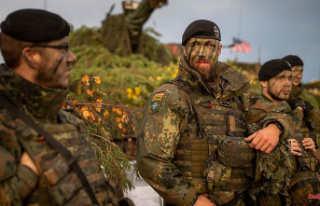According to its own statement, the Ukrainian domestic secret service SBU found pro-Russian pamphlets that denied the existence of the Ukrainian people during several raids. Ukrainian President Zelenskyy announces that religious communities with ties to Moscow are to be put under a ban.
The Ukrainian domestic secret service SBU has found "propaganda writings" in orthodox churches and monasteries in renewed raids into possible links to Russia. During searches of religious sites across the country, he seized "Russian passports, propaganda literature and permits" issued by the Russian occupation authorities, the SBU said. He wants to use the measures to prevent "religious communities being misused as the center of the 'Russian world'".
In addition, the SBU wants to "protect the population from provocation and acts of terrorism." The internal intelligence service had previously announced "counterintelligence measures" at more than a dozen religious sites in several Ukrainian regions, including Lviv in the west, Kherson in the south and Zhitomir in the north-west.
The secret service published photos of confiscated Russian passports, Russian military symbols and pro-Russian writings. According to the SBU, Russian representatives deny "the existence of the Ukrainian people, their language and culture". They also questioned the Ukrainian state. Other released photos show SBU officials in khaki uniforms inspecting religious sites, accompanied by priests in long black robes.
The Ukrainian Orthodox Church has belonged to the Moscow Patriarchate since the 17th century as a branch of the Russian Orthodox Church. Parts of it broke with Moscow as early as 2019 as a result of Russia's annexation of Crimea and its support for pro-Russian separatists in the Donbass region in the east of the country. In May, after the Russian attack on Ukraine, she completely broke with Moscow.
In early December, Ukrainian President Volodymyr Zelenskyi announced that he would restrict the activities of religious organizations and groups with ties to Russia. This was intended to prevent "subversive activities by the Russian secret service in the religious sphere". A corresponding draft law should be submitted to Parliament and passed by it.
At the end of November, the SBU had already confiscated "pro-Russian literature" and cash in several Orthodox monasteries during raids because of possible connections to Russia, and had also interrogated numerous people. In total, he searched more than 350 church buildings at the time, including the Lavra Pechersk cave monastery in the capital Kyiv, which is a UNESCO World Heritage Site.












